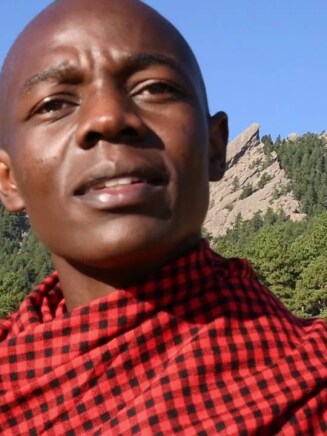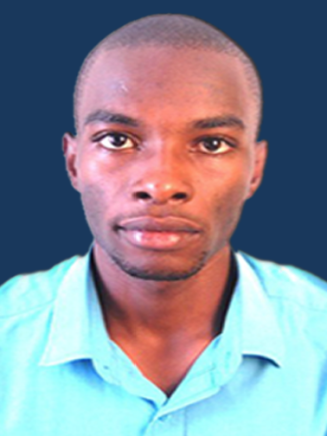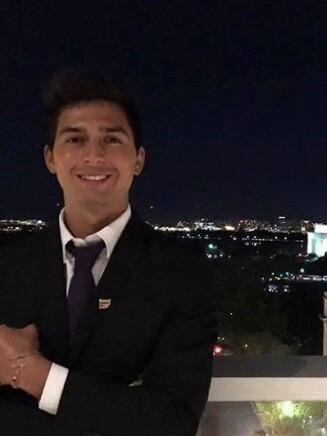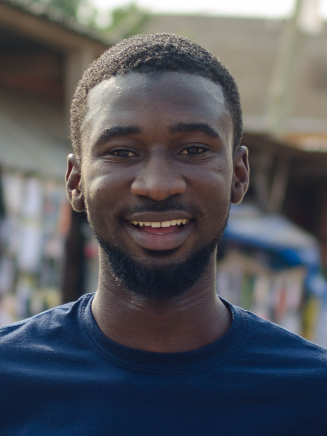It’s not easy being a change agent.
When these eight young men and women set out to make a difference in healthcare, they weren’t always met with support and excitement. But through hard work and unwavering commitment, they persevered nonetheless.
And this week, they’ll meet each other—and more than 1,300 others just like them—at the One Young World Summit, an annual gathering where young leaders aged 18 to 30 can share their big ideas for creating positive change around the globe.
Johnson & Johnson has sent dozens of promising young employees to the summit since it kicked off five years ago, but these eight up-and-comers are the first recipients to receive external scholarships from the company to attend this year’s event in Bogotá, Colombia.
We caught up with the scholars—who are also receiving one-on-one coaching from Johnson & Johnson executives—to hear more about their passion programs.
Charles Akhimien, 28,
“This mother was trying to manage her baby’s situation on her own for days, partly because she thought it was nothing serious and partly because she couldn’t afford a hospital,” Akhimien says. When she finally brought her baby to the hospital, it was too late—the child died 15 minutes after being admitted.
Akhimien didn’t want to watch something like this happen again. And that’s how MOBicure—a mobile health technology company whose flagship product enables mothers and pregnant women to easily monitor their children’s health by providing basic medical info via cellphones—was born.
“By attending the One Young World Summit, I hope to make lifelong connections that will enable me to increase the scope of my impact and change the world even more,” Akhimien says.

Kaleigh Heard, 26,
The duo got the idea after volunteering in Greece with a number of large NGOs, where they learned that many refugees are given ripped, stained and previously worn underwear, and women and girls are often too ashamed to ask a male volunteer for sanitary protection.
Just one year after its inception, The Unmentionables now serves refugees in several parts of Greece and Central and East Africa. They have given underwear to more than 10,000 refugees, sanitary protection to 2,000 women and condoms to 4,000 migrants.
“Forced migration due to conflict is occurring in every region of the world, and in each instance, intimate health and hygiene is consistently overlooked,” Heard says. “It’s incredible the impact these small products can have on the dignity these people experience. What I most hope to gain from the summit is the opportunity to share the stories of the forcibly displaced communities I work with. Their voices, particularly those of young refugees, need to be heard.”

Jack Hisard, 23,
“There was no medical facility near my village, which made it hard for people to access healthcare,” he says. “Many lives were lost. Child and mother mortality rates were always high. I never wanted another child to live through what I’d gone through.”
So when he was just 19 years old, Hisard founded Mama Clinic, a health center in Kenya that has served more than 30,000 people across the Kenya-Tanzania border since 2013.
“I’ve been able to grow Mama Clinic from three beds to 42,” he says. “Healthcare is a fundamental human right—every single individual should be able to access quality and affordable medical care no matter their geographical location.”

Tạ Minh Tuấn, 29,
Tuấn decided to take action and founded HELP International, a medical home care organization that helps prevent disease, reduce medical costs and decrease hospital overcrowding.
“My father’s cancer prompted me to ask myself, ‘What is my life’s meaning?’ ” he says. In launching HELP, Tuấn created an organization that would not only help his dad have access to better healthcare service at home, but also many other patients like him. I want to make Vietnam—and the world—a better place to live.”

Patience Osei, 27,
And, in 2013, she was able to put those experiences into practice during the Ebola outbreak that ultimately claimed the lives of more than 11,000 civilians and over 500 healthcare workers. As the product development manager for Ebola personal protective equipment (PPE) at Johns Hopkins University, Osei successfully patented two new Ebola suit designs—and even traveled to Guinea and Liberia in the midst of the outbreak to test the protective clothing on healthcare workers.
Osei is now refining the design of a respirator and hood that is low-cost, easier to use and more durable than the current suits, which can be used to protect healthcare workers from airborne and contact infectious diseases.
“When I see a problem, I do something about it,” Osei says. “I’m eager to attend the summit to meet like and unlike minds of leaders from all capacities. Isaac Newton said it best: ‘If I’ve come far, it’s by standing on the shoulders of giants.’ At the summit, I’ll be able to meet modern-day giants who will inspire and help me do more for Africa.”

Umar Kabanda, 29,
His ultimate goal: that every child born with HIV/AIDS is properly cared for, which is how he came to found the Child Mobile Clinic in Uganda, a network of healthcare workers who provide care for incarcerated women and their children.
“I believe health is wealth, and feel this work gives inmates hope to live, transform and reintegrate into their communities,” he says. “By attending the summit, I’ll get to meet other people transforming their communities. I’m excited to share the best practices I have discovered in working with vulnerable groups.”

David Medina Andrade, 26,
How He’s Making a Difference ... Andrade’s life as an entrepreneur began when he was just 14 years old. His mother was unemployed, so they began selling homemade cakes door to door. When they started, they sold about 10 cakes per week; after a month, they were up to 100 cakes a week—and the money they made helped pay for rent, food and even Andrade’s school tuition.
“My entrepreneurial endeavors started thanks to an economic crisis,” he says. So when Colombia was faced with a crisis—the fallout from five decades of civil war—Andrade relied on his entrepreneurial skills to create Fundación Qubo, an organization that provides psychological support to women and adolescents who are victims of armed conflict.
“Mental health begins when a human being is free to be, love, work and study—and there is a net supporting him or her,” he says of his organization, which plans to reach 20,000 families in the next five years. “I applied for the One Young World scholarship because I feel connected to Johnson & Johnson’s mission, and I’m eager to meet other young entrepreneurs who are on a similar mission to make good health more accessible to everyone.”

Abdul Samed Zurak, 23,
“I was just 16 years old at the time and very curious, so when I learned that hepatitis could be transmitted from mother to child, I started educating my cousins on the need to get screened for the disease,” Zurak says.
His life experiences also inspired him to launch the Zurak Cancer Foundation, a social media campaign to create awareness about cancer in Ghana. Despite its growing burden—and the fact that some of the most prevalent types of cancers are related to such infectious agents as hepatitis—cancer continues to be a low public health priority in Africa.
Zurak is on a mission to change that—just like his fellow One Young World stalwarts.

Want to Be a One Young World Scholar?
You are now leaving jnj.com.
This link will take you to a website outside of Johnson & Johnson, which is governed by its own privacy policy and terms of use. Click continue to proceed.




